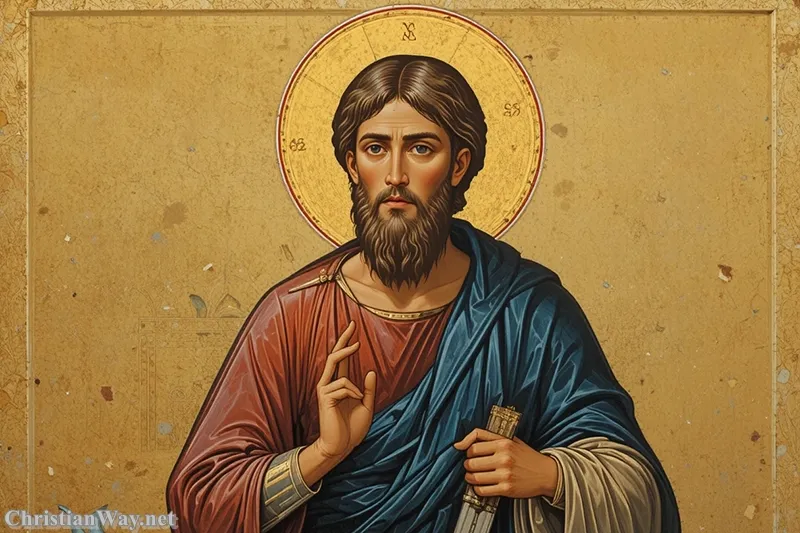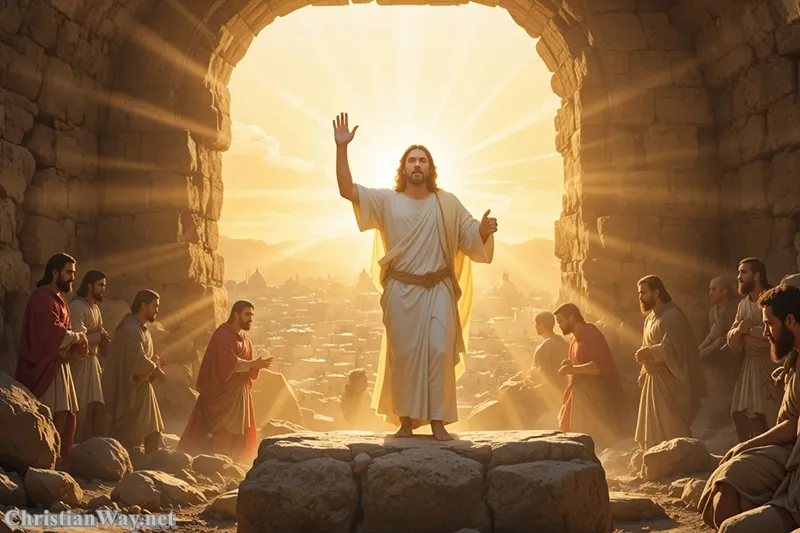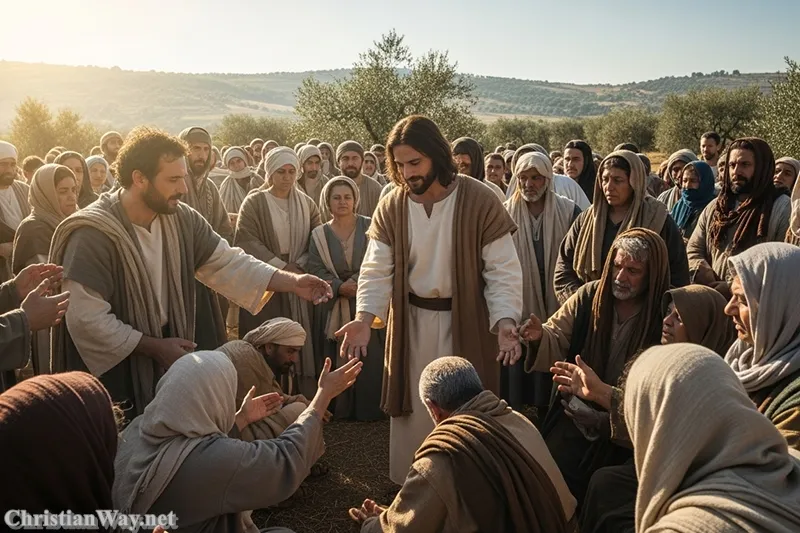Dear friends in Christ,
Every human soul, no matter how far it wanders, carries a secret longing to worship. Deep within us lies an instinct older than language — the desire to bow before something greater than ourselves, to lift our hearts toward the Source of all beauty and truth. Worship is not simply a religious act; it is the most intimate movement of love between the creature and the Creator. In worship, the human heart remembers who it is and to whom it belongs.
When we speak of Christian worship, we speak not merely of ritual or song, but of a living encounter with the Lord who has first loved us. Worship is the soul’s response to grace — the turning of our whole being toward God in thanksgiving, adoration, and surrender. It is the place where heaven touches earth, where time pauses before eternity, and where love becomes prayer.
Let us, then, reflect together on what Christian worship truly is — not as a concept, but as a sacred reality that can renew our hearts and transform our lives.
The Meaning of Worship in the Christian Life
At its simplest, to worship means to “ascribe worth.” The very word comes from the Old English weorthscipe, meaning to recognize and declare the worthiness of another. To worship God, therefore, is to acknowledge that He alone is worthy — of our praise, our love, our obedience, our very lives.

In Scripture, worship is always relational. It begins not with human initiative, but with divine invitation. God calls His people: “Come, let us worship and bow down, let us kneel before the Lord our Maker” (Psalm 95:6). Worship is never a transaction we initiate, but a response we offer. We love because He first loved us.
The first Christians understood this profoundly. Gathered in homes, catacombs, or small assemblies, they offered prayers and thanksgiving to the risen Lord. Their worship was not a performance, nor an escape from the world, but an act of belonging — the heart of their identity as the Body of Christ. Through worship, they remembered that they were no longer slaves to sin or fear, but sons and daughters redeemed by the blood of the Lamb.
The Presence of God in Worship
God Dwelling Among His People
From the beginning of salvation history, God has desired to dwell among His people. The story of worship is, in truth, the story of divine presence. In the wilderness, He guided Israel by a pillar of cloud and fire; in the tabernacle, He revealed His glory between the wings of the cherubim; in the Temple of Jerusalem, His name was enthroned. But in Christ, this mystery reached its fullness: “And the Word became flesh and dwelt among us” (John 1:14).
In Christian worship, the presence of God is not symbolic — it is real. When we gather in His name, Christ Himself stands among us. He is the true High Priest, offering the perfect sacrifice to the Father. Every act of worship, therefore, is an encounter with the living Christ, who mediates between heaven and earth.
The Holy Spirit — The Breath of Worship
No one can truly worship without the Spirit. St. Paul reminds us: “We do not know how to pray as we ought, but the Spirit Himself intercedes for us with sighs too deep for words” (Romans 8:26). The Holy Spirit stirs the soul to cry, “Abba, Father!” and transforms our words and silence into living praise.
When the Church gathers, it is the Spirit who unites the faithful across centuries and cultures into one song of adoration. He is the quiet breath that carries our prayers to the Father, the fire that purifies our hearts, the music beneath every hymn of love.
The Forms of Christian Worship
The Liturgy — The Summit and Source
For Catholics and Orthodox believers, the liturgy — especially the Holy Eucharist — is the summit and source of all Christian life. In the Mass or Divine Liturgy, heaven and earth meet. Christ offers Himself anew, not in suffering but in glory, making present His once-for-all sacrifice on the Cross.
When we participate in the liturgy, we are not spectators but participants in the mystery of redemption. As the priest lifts the bread and wine, our hearts are lifted too, united with the offering of Christ to the Father. This is the heart of Christian worship: thanksgiving — for that is what “Eucharist” means.
In Protestant and Anglican traditions, the preaching of the Word and the breaking of bread hold central place. Worship through Scripture and song, guided by the Spirit and grounded in the Gospel, draws believers to personal encounter with Jesus Christ. Whether through the solemn beauty of a cathedral Eucharist or the heartfelt simplicity of a small chapel’s prayer service, worship remains the same act of love — the soul’s turning toward God.
Prayer and Song — The Voice of the Heart
The psalmist writes: “Let everything that has breath praise the Lord!” (Psalm 150:6). From the earliest days, Christians have sung their faith — from hymns whispered in Roman prisons to anthems echoing through modern churches. Music is not merely ornament in worship; it is the natural language of love.
Prayer, too, is worship. Whether spoken aloud or whispered in silence, it draws the soul into communion. The Lord’s Prayer, the Psalms, spontaneous praise, and meditative contemplation — all these are ways the heart lifts itself to God. The form may differ, but the essence is the same: surrender and adoration.
Daily Life as Worship
True worship cannot be confined to one hour on Sunday. St. Paul calls us to a deeper offering: “Present your bodies as a living sacrifice, holy and acceptable to God, which is your spiritual worship” (Romans 12:1). Every act of love, every work of mercy, every moment lived in faith becomes worship when offered to God.
When a mother comforts her child, when a worker does his duty honestly, when a person forgives a wrong — all these can be acts of worship, if done in love. The Christian life itself becomes a liturgy, lived not in a sanctuary but in the world.
The Purpose of Worship
To Love God for Who He Is
At the heart of worship lies love — not for what God gives, but for who He is. The saints teach us that the purest worship seeks nothing in return. St. Augustine once prayed, “You have made us for Yourself, O Lord, and our hearts are restless until they rest in You.” Worship is that rest — the homecoming of the heart.
In adoring God, we are not diminishing ourselves; we are becoming who we were created to be. Worship restores order to the soul. It reminds us that we are not the center, but beloved creatures of a loving Creator.
To Transform the Worshipper
True worship always changes the one who worships. When we behold the glory of God, something in us is healed, humbled, and renewed. Isaiah, seeing the Lord in the temple, cried out, “Woe is me! I am a man of unclean lips,” and yet was purified by a burning coal (Isaiah 6:1–7). Worship brings both awe and mercy — revelation and cleansing.
The more we worship, the more we resemble what we adore. If we worship wealth, we become greedy; if we worship power, we become harsh; but if we worship Christ, we become gentle, truthful, and free.
To Unite Heaven and Earth
Every act of worship participates in the eternal song of heaven. In the Book of Revelation, John sees multitudes crying out, “Holy, holy, holy is the Lord God Almighty!” (Revelation 4:8). When the Church gathers, we join that same unending hymn. Angels and saints are not distant spectators but companions in our praise.
Thus, worship is not only personal but cosmic. It gathers all creation into praise — the stars, the rivers, the birds of the air. The universe itself becomes a cathedral, and every heartbeat a prayer.
The Challenges of Worship in the Modern World
Our age is one of distraction. We live surrounded by noise, screens, and constant motion. The human heart, however, still longs for stillness — for the quiet where God speaks. One of the greatest obstacles to worship today is not disbelief, but forgetfulness. We have forgotten how to be silent, how to stand in awe.
Many people seek emotional experiences or entertainment in worship. Yet true worship is not about feeling, but faith. It may come with joy or with tears, with music or in silence. What matters is not the external form but the inner posture: a heart turned toward God.
The Church, across all traditions, calls us back to this simplicity — to worship “in spirit and in truth” (John 4:24). Whether in a great cathedral or a humble home, when the heart bows before the Lord, heaven is near.
Worship and Community
Worship is never an isolated act. The very word “Church” (from ekklesia) means “assembly.” We are not saved alone, nor do we worship alone. The early Christians broke bread “together with glad and generous hearts” (Acts 2:46).
In the communion of the Church, worship becomes both personal and communal — a chorus of voices united in one Spirit. Each believer brings his or her own story, wounds, and hopes, and together they become a living offering to God.
The unity of worship reminds us that love of God cannot be separated from love of neighbor. To adore Christ in the Eucharist but ignore Him in the poor is to miss the heart of worship. Every Mass, every prayer service sends us forth to live what we have prayed — to bring God’s presence into the world.
The Eternal Worship
In the end, all earthly worship points toward one reality: the eternal worship of heaven. There, every tear will be wiped away, and every heart will be filled with joy. The saints stand before the throne of God, not with anxiety or effort, but in perfect peace. Their song is endless because their love is complete.
Our earthly liturgies are rehearsals for that eternal communion. Every time we gather to worship, we taste a foretaste of heaven — the joy of being fully known and fully loved.
As St. John Chrysostom once said, “When the Church on earth sings, the angels join her; when the angels praise, the Church joins them. There is one choir, one song, one worship.”
Reflect and Pray
Worship is the soul’s great “yes” to God. It is where our hearts are healed, our pride undone, our lives reordered in love. Whether through liturgy or silence, song or service, every act of true worship begins and ends in the same mystery — the love of God revealed in Jesus Christ.
Let us, then, learn again to worship not with mere words, but with our lives. To make of our hearts an altar, our love a song, and our days a continual prayer.
May our worship, imperfect as it is, rise like incense before the throne of grace — until the day we join the unending praise of heaven.
“To Him who sits upon the throne, and to the Lamb, be blessing and honor and glory and might forever and ever.” — Revelation 5:13
May the peace of Christ dwell richly in your heart, and may your life become a living hymn of praise.
— Fr. John Matthew, for Christian Way





